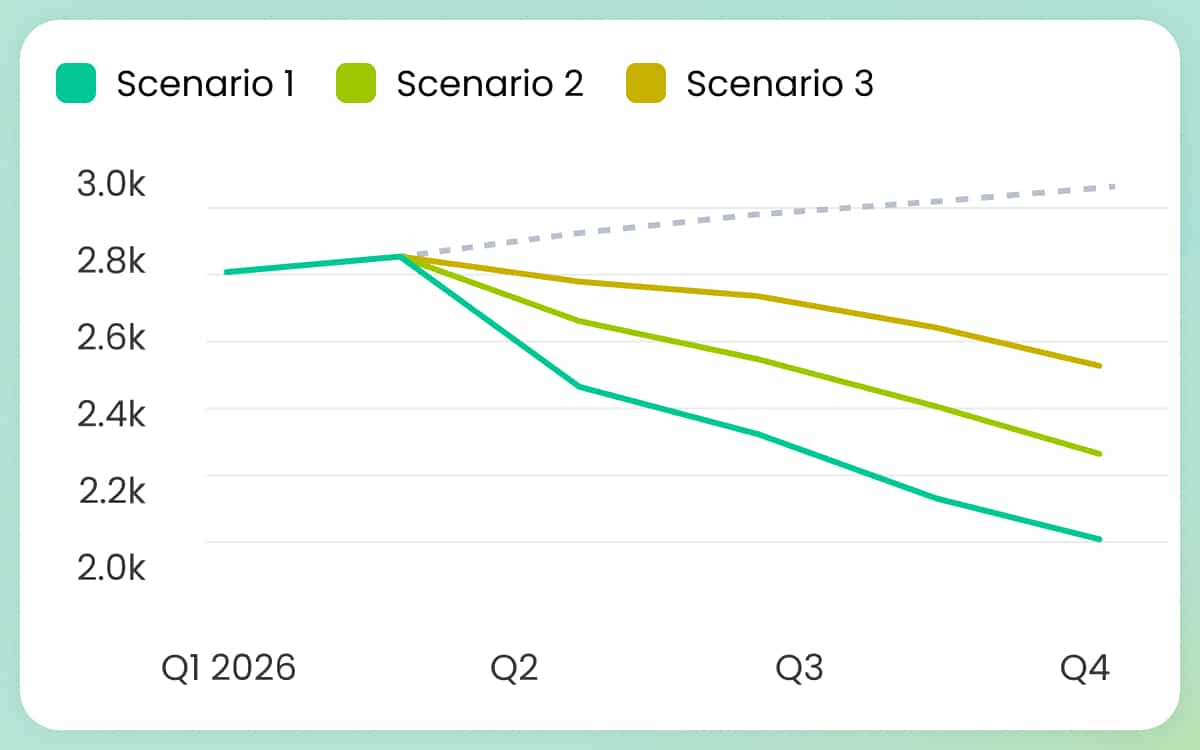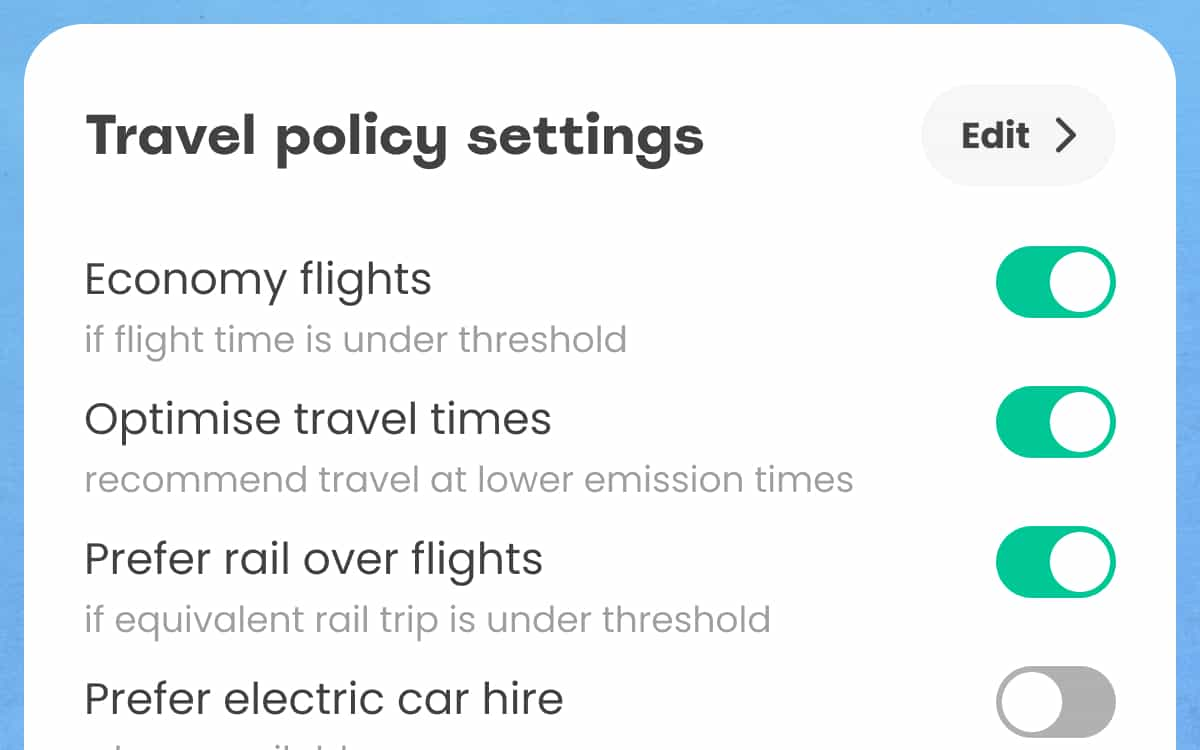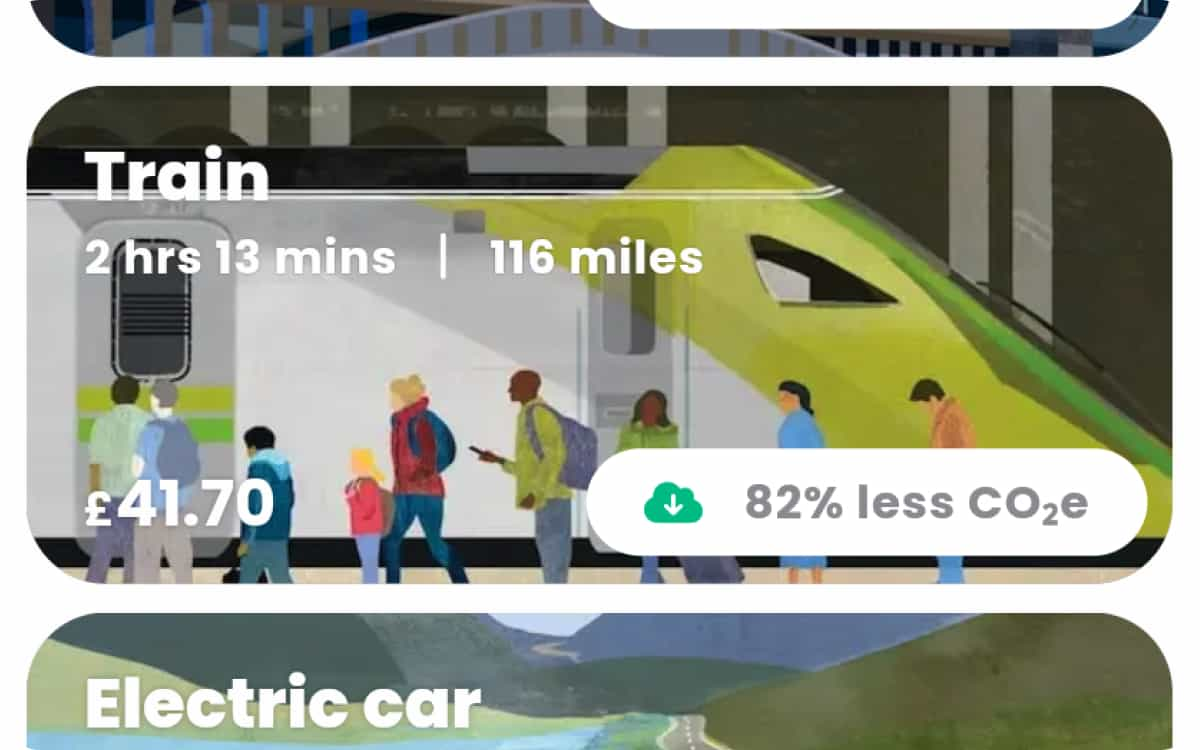Organisations need to balance emissions reduction with business need and operational effectiveness by providing a scenario modelling approach tailored to the company's culture. Every emissions reduction intervention, such as shifting air to rail under a certain distance, increasing virtual meeting uptake by using carbon budgets, selecting greener hotels, or changing travel approval thresholds, can be virtually tested within RouteZero's planning tools before anything moves to implementation. The platform models the direct carbon savings, cost impacts, and operational implications of each intervention or policy change, allowing decision-makers to visualise and quantify trade-offs in real time.
Sustainable travel policies must also set default positions to minimise emissions, such as requiring justification for travel, encouraging or mandating virtual meetings, and prioritising behaviour change through nudges aligned with behavioural psychology science. However, not all business objectives can be met virtually or through reduced travel. Policy must specify exemptions and recognize circumstances where travel is essential, documenting criteria and decision-making processes. Overly rigid restrictions risk undermining operational priorities; loopholes or excessive flexibility undermine emissions objectives. RouteZero takes an approach of marginal gains whereby incentives and a large number of reductions deliver the required decarbonisation rate without overly controlling policy changes.




